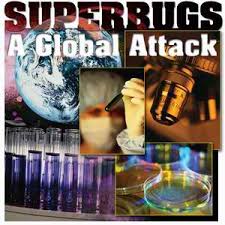Doctors warn gonorrhea becoming ‘untreatable’ due to antibiotic resistance
 February 10, 2012 – NORTH CAROLINA – In this morning’s NEJM, physicians from the Centers for Disease Control and Prevention, University of North Carolina at Chapel Hill and University of Washington bluntly warn that gonorrhea at least threatens to become untreatable, thanks to the acquisition of antibiotic resistance: It is time to sound the alarm. During the past 3 years, the wily gonococcus has become less susceptible to our last line of antimicrobial defense, threatening our ability to cure gonorrhea and prevent severe sequelae. As I reported here last July, gonorrhea (which acquires resistance mutations much more easily than syphilis does) has been steadily becoming indifferent to entire classes of antibiotics used against it: first sulfa drugs, then penicillin, then tetracycline, then fluoroquinolones such as Cipro. The last class of drugs that worked against the disease easily, quickly and cheaply – key attributes, if you’re running publicly funded clinics where people may not give you their real names — were the class called cephalosporins. But for the past several years, decreased susceptibility to cephalosporins has been moving across the globe, appearing first in Japan, and then spreading both west across Europe and east via Hawaii to the United States. One case of true resistance has been identified in Japan. But here is the key point: Gonorrhea, which causes about 700,000 cases a year in the United States, is steadily ratcheting up the doses of drug necessary to cure it, while at the same time there are no new drugs in the pipeline to treat it. For decades — since the magic bullets of antibiotics made it possible for STDs to become a public health priority — STD detection and treatment has followed a single well-worn pattern. Highly resistant STDs could change that, if they become widely distributed across the planet. –Wired
February 10, 2012 – NORTH CAROLINA – In this morning’s NEJM, physicians from the Centers for Disease Control and Prevention, University of North Carolina at Chapel Hill and University of Washington bluntly warn that gonorrhea at least threatens to become untreatable, thanks to the acquisition of antibiotic resistance: It is time to sound the alarm. During the past 3 years, the wily gonococcus has become less susceptible to our last line of antimicrobial defense, threatening our ability to cure gonorrhea and prevent severe sequelae. As I reported here last July, gonorrhea (which acquires resistance mutations much more easily than syphilis does) has been steadily becoming indifferent to entire classes of antibiotics used against it: first sulfa drugs, then penicillin, then tetracycline, then fluoroquinolones such as Cipro. The last class of drugs that worked against the disease easily, quickly and cheaply – key attributes, if you’re running publicly funded clinics where people may not give you their real names — were the class called cephalosporins. But for the past several years, decreased susceptibility to cephalosporins has been moving across the globe, appearing first in Japan, and then spreading both west across Europe and east via Hawaii to the United States. One case of true resistance has been identified in Japan. But here is the key point: Gonorrhea, which causes about 700,000 cases a year in the United States, is steadily ratcheting up the doses of drug necessary to cure it, while at the same time there are no new drugs in the pipeline to treat it. For decades — since the magic bullets of antibiotics made it possible for STDs to become a public health priority — STD detection and treatment has followed a single well-worn pattern. Highly resistant STDs could change that, if they become widely distributed across the planet. –Wired